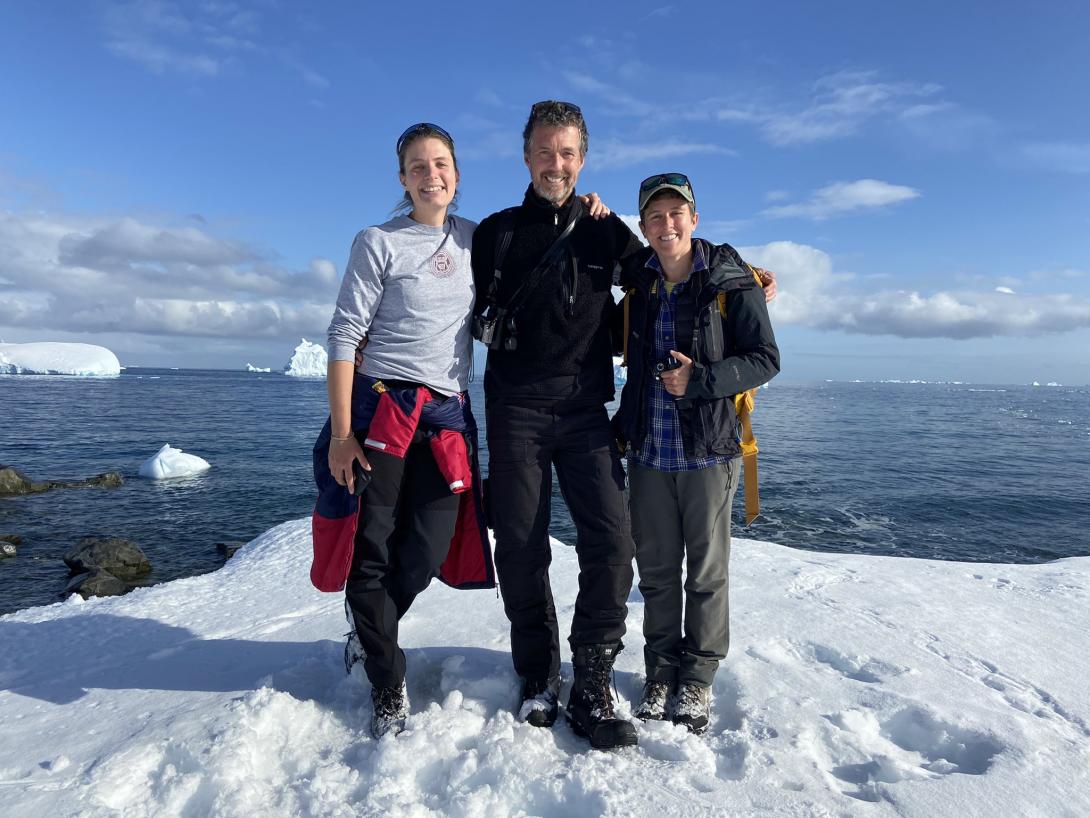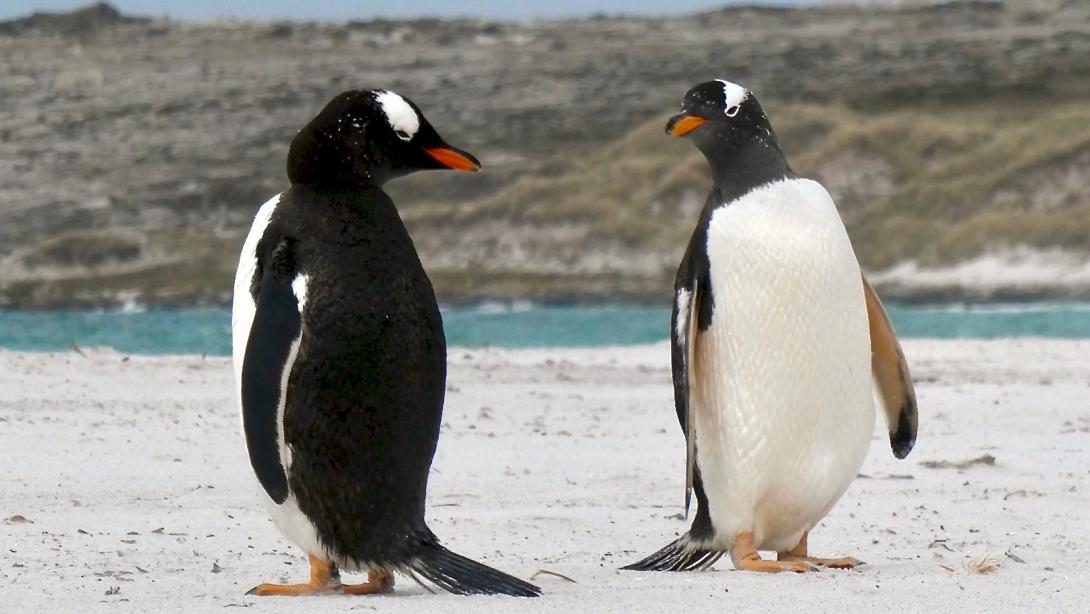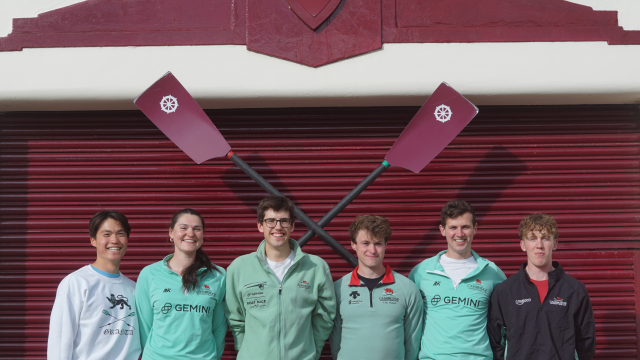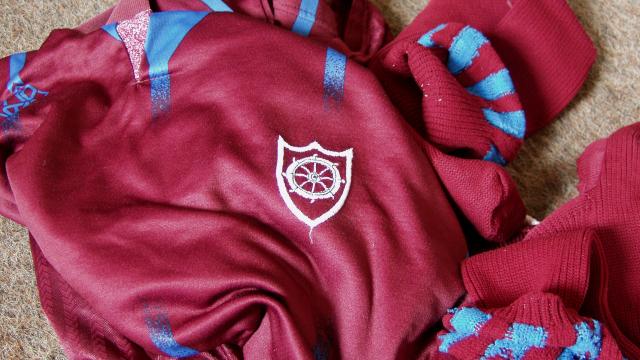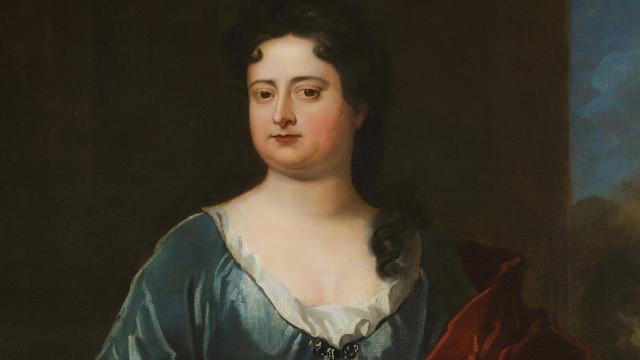
St Catharine's Fellow Professor Ian Willis (1989) has arrived in Antarctica to retrieve data from polar research instruments that were set up two years ago. Professor Willis is travelling with Becky Dell, a PhD student from the Scott Polar Research Institute at the University of Cambridge, and Dr Laura Stevens from the University of Oxford.
The team first completed a quarantine period in the Falkland Islands and faced a short delay while they waited for runway conditions at the British Antarctic Survey's Rothera base to improve. From Rothera, there is a further 400 km to travel into the icy continent to Fossil Bluff on the edge of the George VI Ice Shelf where they will stay for around three weeks. Once there, they will commute daily onto the ice shelf by skidoo to find the global positioning system instruments, water level sensors, weather stations, and time-lapse cameras that have hopefully been operating continuously since November 2019. They also plan to use a novel hot ring corer to retrieve 10–15 m deep ice cores from the ice shelf surface. The team will service and reposition the instruments to collect more data, before returning in January 2023 to pack them all up and bring them home.
Working with colleagues Alison Banwell (University of Colorado Boulder) and Doug MacAyeal (University of Chicago), the team will use the data to examine in detail how much melting occurs across the ice shelf each summer, how much of that water ponds up in lakes, and how that melting and ponding causes the floating ice shelf to bend and possibly crack. The team's findings should improve our understanding of how ice shelves fracture and break up. This may be more likely in the future as melting around Antarctica's periphery increases, ultimately due to global warming.
A recent study using satellite data by team members showed that 2019–20 was an exceptionally high melt summer, with more water ponded on the George VI Ice shelf than at any time for the past three decades. In January 2020, just two months after the team set up their instruments, a large part of the northern part of the ice shelf was covered with water. The team are concerned, therefore, that some of their instruments may have got damaged as a result. They were unable to revisit the sites in the 2020–21 summer because of COVID-19, making this year's visit all the more important.
The work is funded by the UK Natural Environment Research Council, the US National Science Foundation and British Antarctic Survey Logistics. Becky Dell is funded by the European Space Agency through a Climate Change Initiative Fellowship.
